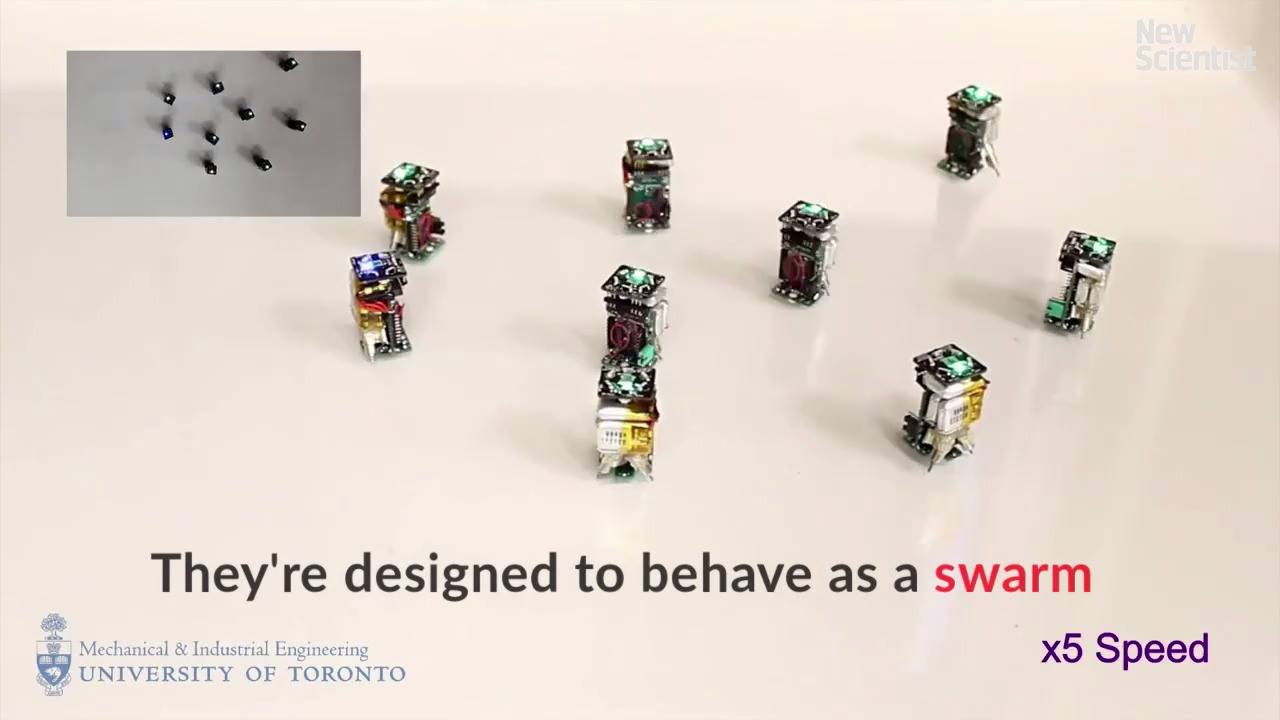Page 10458
Oct 31, 2016
Why the Many-Worlds Formulation of Quantum Mechanics Is Probably Correct
Posted by Andreas Matt in categories: mobile phones, quantum physics
 I have often talked about the Many-Worlds or Everett approach to quantum mechanics — here’s an explanatory video, an excerpt from From Eternity to Here, and slides from a talk. But I don’t think I’ve ever explained as persuasively as possible why I think it’s the right approach. So that’s what I’m going to try to do here. Although to be honest right off the bat, I’m actually going to tackle a slightly easier problem: explaining why the many-worlds approach is not completely insane, and indeed quite natural. The harder part is explaining why it actually works, which I’ll get to in another post.
I have often talked about the Many-Worlds or Everett approach to quantum mechanics — here’s an explanatory video, an excerpt from From Eternity to Here, and slides from a talk. But I don’t think I’ve ever explained as persuasively as possible why I think it’s the right approach. So that’s what I’m going to try to do here. Although to be honest right off the bat, I’m actually going to tackle a slightly easier problem: explaining why the many-worlds approach is not completely insane, and indeed quite natural. The harder part is explaining why it actually works, which I’ll get to in another post.
Any discussion of Everettian quantum mechanics (“EQM”) comes with the baggage of pre-conceived notions. People have heard of it before, and have instinctive reactions to it, in a way that they don’t have to (for example) effective field theory. Hell, there is even an app, universe splitter, that lets you create new universes from your iPhone. (Seriously.) So we need to start by separating the silly objections to EQM from the serious worries.
The basic silly objection is that EQM postulates too many universes. In quantum mechanics, we can’t deterministically predict the outcomes of measurements. In EQM, that is dealt with by saying that every measurement outcome “happens,” but each in a different “universe” or “world.” Say we think of Schrödinger’s Cat: a sealed box inside of which we have a cat in a quantum superposition of “awake” and “asleep.” (No reason to kill the cat unnecessarily.) Textbook quantum mechanics says that opening the box and observing the cat “collapses the wave function” into one of two possible measurement outcomes, awake or asleep. Everett, by contrast, says that the universe splits in two: in one the cat is awake, and in the other the cat is asleep. Once split, the universes go their own ways, never to interact with each other again.
Continue reading “Why the Many-Worlds Formulation of Quantum Mechanics Is Probably Correct” »
Oct 31, 2016
No Technology Thrives Alone: Progress Is All About Convergence
Posted by Elmar Arunov in categories: biotech/medical, business, computing, Ray Kurzweil
15 years ago, Ray Kurzweil published one of the most significant essays in the history of futurism: “The Law of Accelerating Returns.” This piece showcased the immense power of exponential technology versus linear technology and became a pivotal concept for anyone trying to anticipate what the future held.
The essay predicted advances in business and technology with eerie precision, including how exponential growth would ripple through any technology that became an information technology, such as computing, biotechnology, or energy.
Continue reading “No Technology Thrives Alone: Progress Is All About Convergence” »
Oct 31, 2016
A Revolution in Heart Surgery: Scientists Create Artificial Blood Vessels That Grow Normally
Posted by Shailesh Prasad in categories: 3D printing, biotech/medical
In Brief:
- New artificial blood vessels were able to grow with the recipient in recent animal testing
- Researchers saw a 56% increase in diameter made of patients’ own cells.
We have sufficiently advanced medicine to the point that artificial body parts are no longer science fiction. In fact, we may even start 3D printing organs, or have them grown in a lab. However, their artificial nature often means they won’t grow with a patient. For example, children need to undergo repeated surgeries until adulthood to replace implants they have outgrown.
Oct 31, 2016
Diminishing Bitcoin Mining Rewards
Posted by Philip Raymond in categories: bitcoin, cryptocurrencies, economics, internet, privacy
By now, most Bitcoin and Blockchain enthusiasts are aware of four looming issues that threaten the conversion of Bitcoin from an instrument of academics, criminal activity, and closed circle communities into a broader instrument that is fungible, private, stable, ubiquitous and recognized as a currency—and not just an investment unit or a transaction instrument.
These are the elephants in the room:
- Unleashing high-volume and speedy transactions
- Governance and the concentration of mining influence among pools, geography or special interests
- Privacy & Anonymity
- Dwindling mining incentives (and the eventual end of mining). Bitcoin’s design eventually drops financial incentives for transaction validation. What then?
 As an Op-Ed pundit, I value original content. But the article, below, on Bitcoin fungibility, and this one on the post-incentive era, are a well-deserved nod to inspired thinking by other writers on issues that loom over the cryptocurrency community.
As an Op-Ed pundit, I value original content. But the article, below, on Bitcoin fungibility, and this one on the post-incentive era, are a well-deserved nod to inspired thinking by other writers on issues that loom over the cryptocurrency community.
This article at Coinidol comes from an unlikely source: Jacob Okonya is a graduate student in Uganda. He is highly articulate, has a keen sense of market economics and the evolution of technology adoption. He is also a quick study and a budding columnist.
Oct 31, 2016
Bitcoin Fungibility: A Benefit of privacy & anonymity
Posted by Philip Raymond in categories: bitcoin, cryptocurrencies, economics, internet, privacy
I was pointed to this article by Jon Matonis, Founding Director, Bitcoin Foundation. I was sufficiently moved to highlight it here at Lifeboat Foundation, where I am a contributing writer.
On Fungibility, Bitcoin, Monero and ZCash … [backup]
This is among the best general introductions I have come across on traceability and the false illusion of privacy. The explanation of coin mixing provides and  excellent, quick & brief overview.
excellent, quick & brief overview.
Regarding transaction privacy, a few alt-coins provide enhanced immunity or deniability from forensic analysis. But if your bet is on Bitcoin (as it must be), the future is headed toward super-mixing and wallet trading by desgin and by default. Just as the big email providers haved added secure transit,
Bitcoin will eventually be fully randomized and anonymized per trade and even when assets are idle. It’s not about criminals; it’s about protecting business, government and individuals. It’s about liberty and our freedoms. [Continue below image]
Continue reading “Bitcoin Fungibility: A Benefit of privacy & anonymity” »
Oct 31, 2016
Who Will Be First To “Hack The Code” Of Aging?
Posted by Bryan Gatton in category: life extension
Oct 31, 2016
Michael Fossel on Aging and the Telomerase Revolution
Posted by Bryan Gatton in categories: biotech/medical, life extension, singularity

https://www.singularityweblog.com/mic…
Dr. Michael Fossel is one of those few theoreticians who can see much of the big picture of aging. While some use mostly guesswork, and others hope to improve on that with logic, Fossel never shies away from the clear verdict that only data can give. Add his overwhelming compassion as a human being and you will understand why he is a clinician who really cares. You will also get a pretty good idea of what kind of a person Michael is – both personally and professionally. And those are just some of the reasons why enjoy having him back on my Singularity 1on1 podcast for an in-depth discussion of his latest book on the topic titled the Telomerase Revolution.
Continue reading “Michael Fossel on Aging and the Telomerase Revolution” »
Oct 31, 2016
Elon Musk Unveils ‘Solar Roof ’
Posted by Shailesh Prasad in categories: Elon Musk, solar power, sustainability

These little robots can swarm like insects — or form an orderly queue. (Original video from the University of Toronto: http://ow.ly/VWUu305GNKK)












